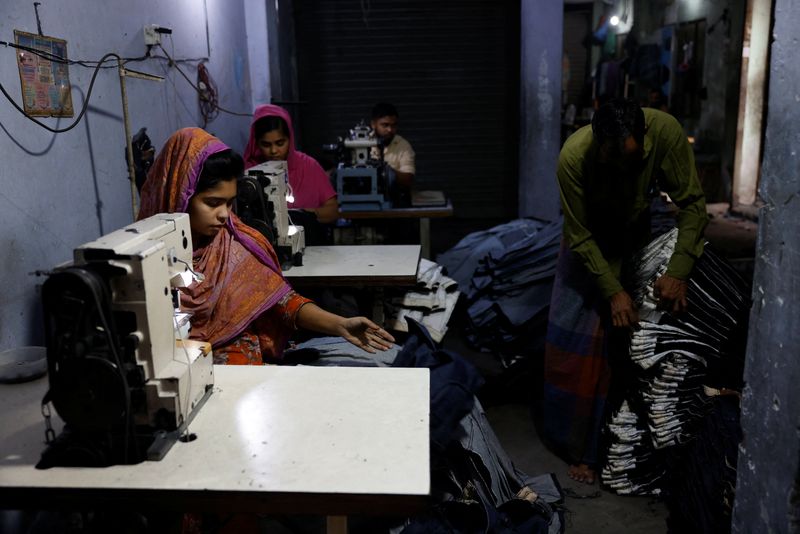By Helen Reid
LONDON (Reuters) – Staff in a few of the world’s greatest garment manufacturing hubs in Bangladesh, Vietnam, and Pakistan are more and more uncovered to excessive warmth as local weather change pushes temperatures up, a report discovered on Sunday, an issue multinational retailers and types should assist handle.
New European Union laws make retailers promoting within the bloc, like Inditex (BME:), H&M (ST:) and Nike (NYSE:), legally answerable for situations at their suppliers, placing strain on them to assist fund enhancements to chill factories they supply from.
In Dhaka, Hanoi, Ho Chi Minh Metropolis, Phnom Penh and Karachi, the variety of days with “wet-bulb” temperatures – a measurement that accounts for air temperature in addition to humidity – above 30.5 levels Celsius jumped by 42% in 2020-2024 in comparison with 2005-2009, researchers at Cornell College’s World Labor Institute discovered.
Above that threshold, the Worldwide Labor Organisation recommends as a lot relaxation as work in any given hour to take care of secure core physique temperature ranges.
The report recognized solely three retailers – Nike, Levi’s (NYSE:), and VF Corp (NYSE:) – which particularly embody protocols to guard employees from warmth exhaustion of their provider codes of conduct.
COMPANIES WARNED
“We’ve been talking to brands for ages now about this issue, and they’re only now starting to turn their attention to it,” Jason Judd, government director at Cornell College’s World Labor Institute, instructed Reuters.
“If a brand or retailer knows that temperatures in a production area are excessively high or doing damage to worker health, then they’re obligated under this new set of rules to do something about it,” he added.
The EU Due Diligence Directive got here into power in July and can begin making use of to giant corporations from mid-2027.
Fixes to chill factories might embody higher air flow and water evaporative cooling methods, as a substitute of energy-intensive and costly air-con that might enhance producers’ carbon emissions.
Some manufacturing unit house owners would doubtless be keen to make such investments themselves, given how warmth stress considerably impacts productiveness, Judd stated, however the EU guidelines spotlight manufacturers’ accountability to deal with the difficulty too.

The report additionally urged retailers and types to spend money on greater wages and well being protections in order that employees can handle the chance of lacking work days as a result of heatwaves.
Excessive warmth and flooding might erase $65 billion in attire export earnings from Bangladesh, Cambodia, Pakistan and Vietnam by 2030, analysis from asset supervisor Schroders (LON:) and the World Labor Institute discovered final 12 months.




